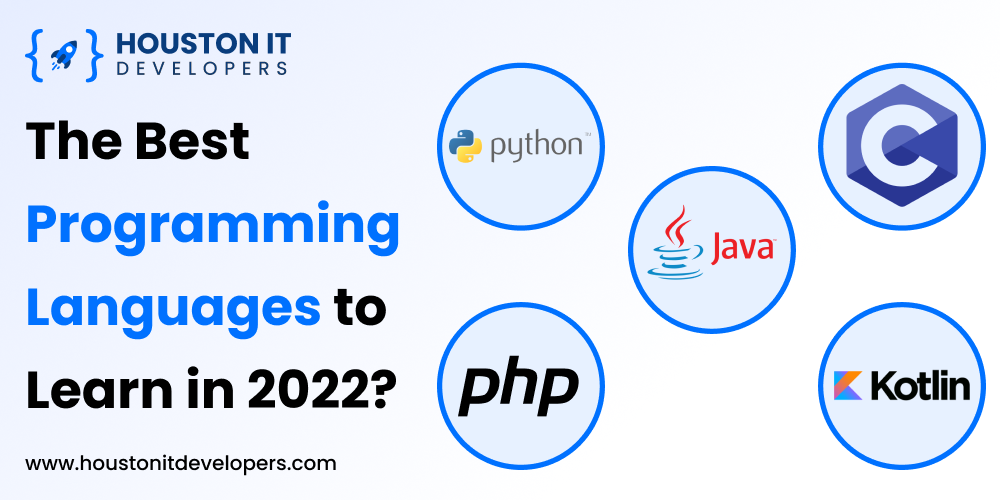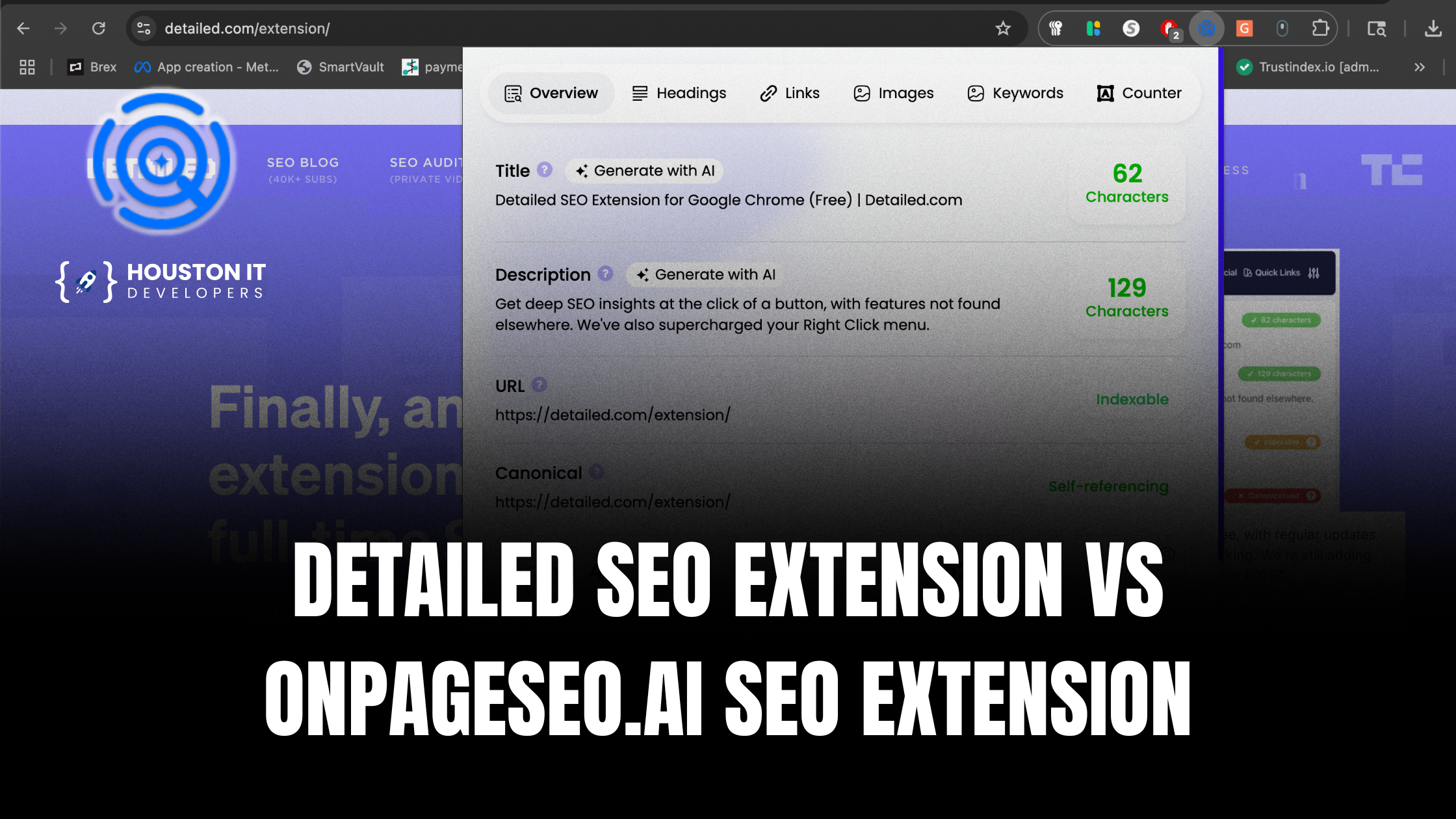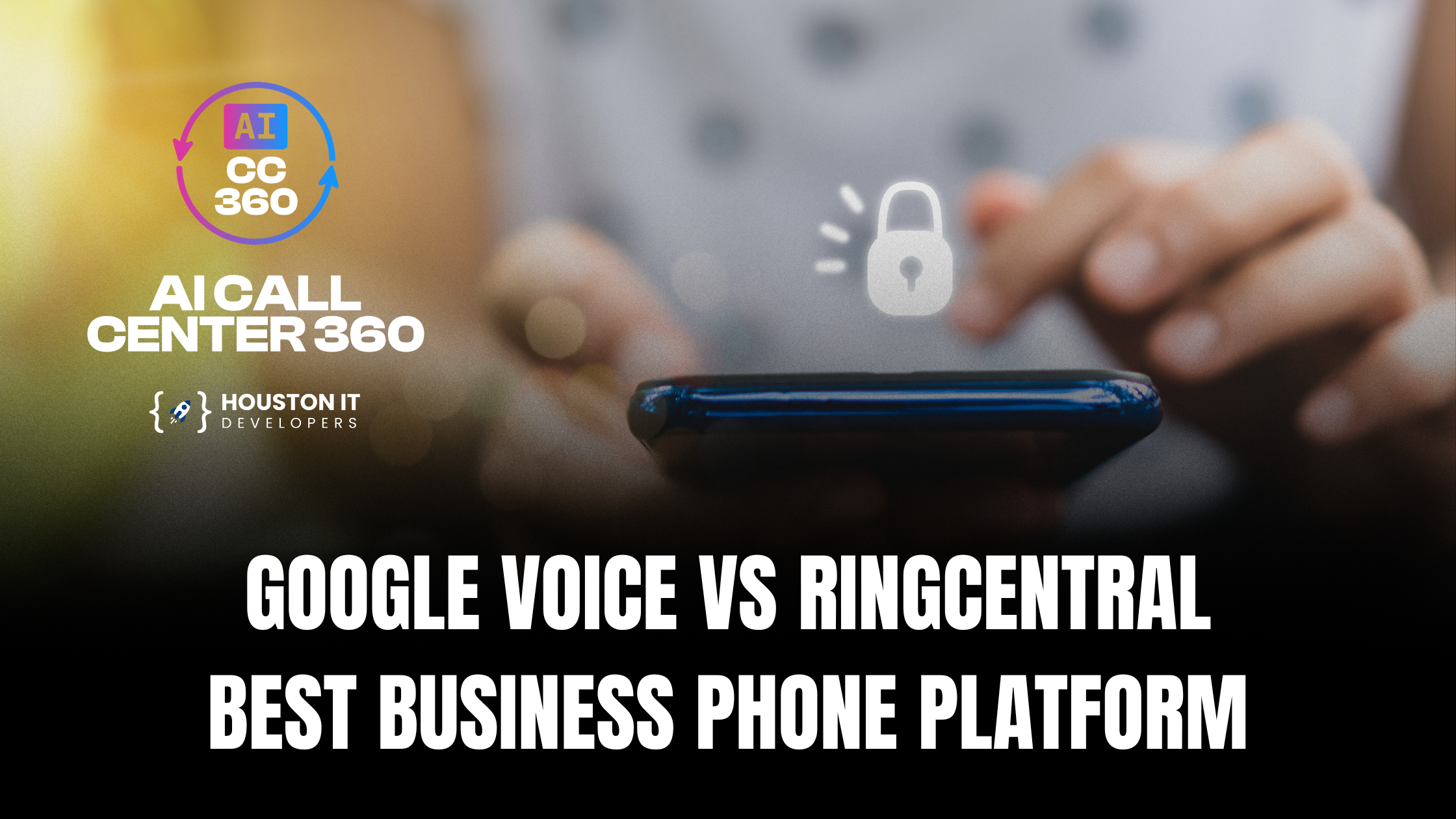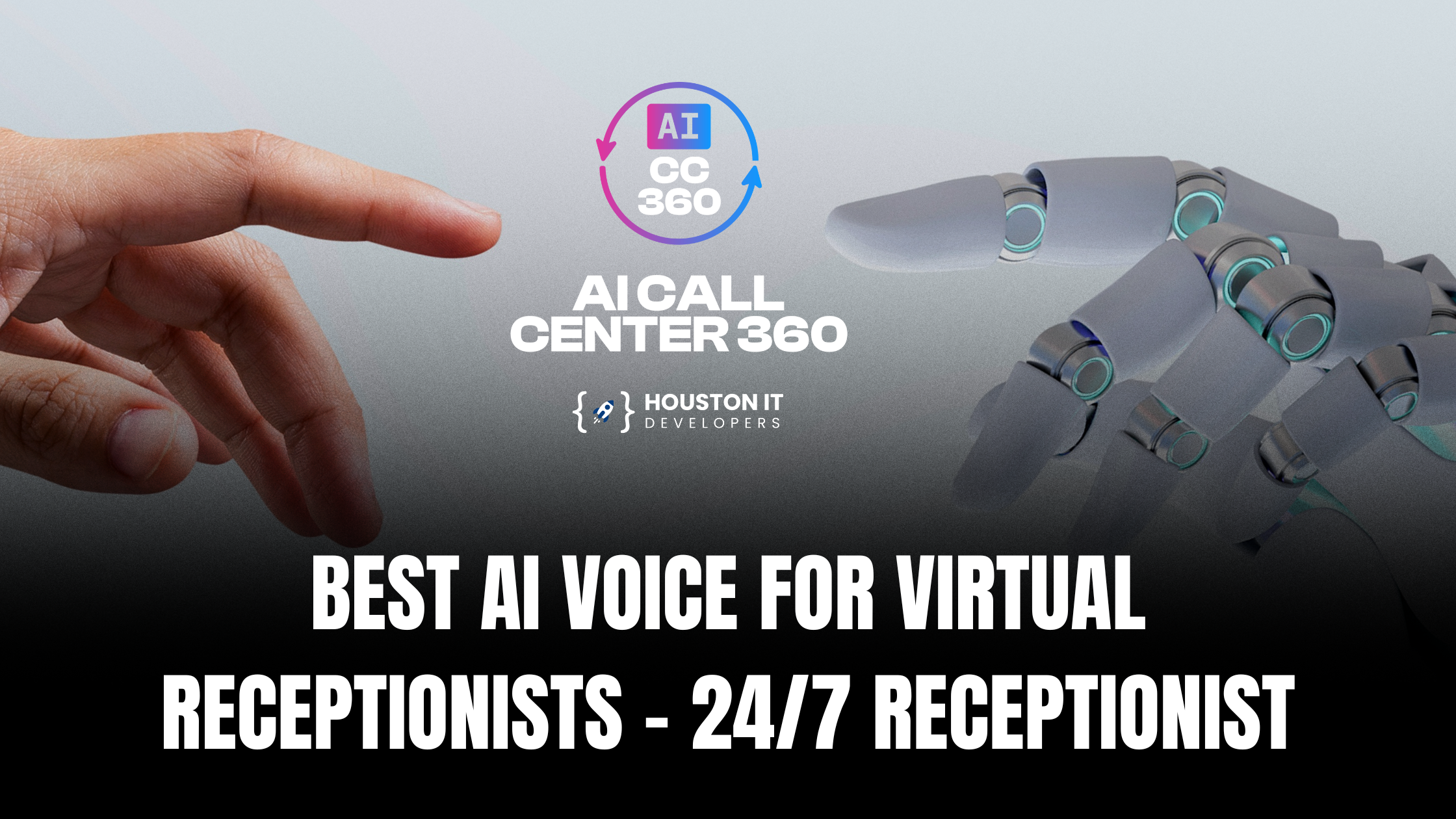One of the challenges when you have decided to learn coding is selecting a programming language. With so many languages serving different purposes, choosing the one that suits your skill sets and interests is a tough choice to make.
You may be interested in software development services or you may want to create mobile applications, you’ll have to choose a programming language that serves your purpose as well as is in demand.
For instance, if you are interested in front-end website designing, JavaScript, HTML, and CSS is for you. If you want to design mobile applications for Android, Java, or Kotlin is suited for you.
So, then which are the best programming languages to learn in 2022? Let us see it here.
1. Java
The “write once, run anywhere” famous language Java has the ability to run on any platform. It is an object-oriented programming language that can be used to create objects encompassing functions and data to provide structure for applications and programs.
Features of Java:
- It is a multi-faceted productive programming language
- Coders can create standard programs with reusable codes
- Programming is easy across different environments and hardware with the Java Virtual Machine software
Benefits of Java:
- Easy to learn and easy to use.
- Used extensively in online finance sectors such as banking, billing, and stock market since it can handle a large volume of data
- Cross-platform functionality can be used in any operating system
- Foundation for developing complex applications
- Backward compatibility as business-case uses
Java used in:
- E-commerce
- Enterprise application development
- Mobile app development
- Web development
- Big data
2. C
Initially developed as a system programming language to write an operating system, the C language has since been the preferred language for all entry-level coders. The main feature of C is its simple set of code and its clean style. The C programing language is the base for creating other languages such as Python and Ruby.
Features of C:
- The most popular basic programing language where step-by-step predefined functions are carried out.
- Stores repeated code in the form of libraries and functions
- Statically typed language where the variable is checked at the time of compilation and not at run time
- Programs written in C can be run and compiled on any system
- Used as the base for many complex languages
Benefits of C:
- Powerful middle-level language having capabilities of assembly language and high-level language
- Good language for beginners
- Efficient language with a rich set of built-in operators used in writing simple or complex C programs
- Easy to extend means more features and operations can be easily added to an already written program
- Robust libraries with rich functions
C used in:
- Game development
- Internet of Things (IoT)
- Machine learning
- Embedded systems in hardware
- System programing
3. C++
C++ is also counted as one of the beginner programming languages. But it is a high-level object-oriented programming language, unlike C which is a procedural programming language.
Features of C++:
- A simple language in which programs can be broken down into logical units and parts
- Object-oriented programming language with concepts such as class, objects, encapsulation, inheritance, and abstraction.
- It is machine-independent but not platform-independent which means a piece of code can run on Linux or Windows but the executable file cannot run on different operating systems.
- C++ compiler deduces the data type while compiling instead of developers having to declare it while coding
- Multi-paradigm language but case-sensitive
- C++ allows developers to allocate memory of a variable or an array at the run time making memory allocation dynamic
Benefits of C++:
- Has a large library and a wide range of data types.
- Compiler-based language and hence faster than Java and Python.
- Allows executing two or more programs concurrently using the thread-based multitasking feature.
- Adaptability with changing hardware and programming ecosystem
- Can be used with cloud systems, mobile devices, and microcontrollers
C++ used in:
- Machine learning
- Embedded systems
- Real-time systems
- System programing
- Game development
- Internet of Things (IoT)
- Distributed systems
4. C#
C# is another branch of C language created especially for operating systems. Known as C Sharp, it is a component-oriented programming language released by Microsoft in 2002 and a much-improved version of the C++ coding language. It has been mainly designed to support the key features of the .NET framework. It combines the best features of VB, C++, and Java.
Features of C#:
- It is simple, consistent, and modern.
- Many frameworks available
- Multi-paradigm language
- Easily integrates with Microsoft
- Robust security model
- It is object-oriented and supports inheritance, encapsulation, and polymorphism.
- Automatically collects garbage and is very efficient in managing the system
- It has a high memory backup so there is no problem with memory leak
- It has a rich intrinsic model for error handling
- It uses a modern approach to debugging
- The C# code is compiled to an intermediate language that is independent of the target operating system and architecture
Benefits of C#:
- A high-level language closer to C, C++, and Java and hence easy to learn
- Extensively used to create Microsoft apps
- Extensive code library, codebases, and data types
- Works across all Windows-enabled platforms
- Large online community with large tutorial resources
C# used for:
- App development
- Web development
- Game development
- Software for popular platforms
- Server-side programming
- Virtual Reality
5. Python
Developed in the 90s, Python gained immense popularity mainly due to its easy-to-learn and easy-to-use experience. Developers can use different programming styles such as functional, object-oriented, and reflective when creating programs.
Features of Python:
- Widely used programing language and can be easily integrated with C and C++
- Free and open-source with simple language design
- Object-oriented programming and supports concepts of classes, objects encapsulation, etc.
- Large standard library supporting common commands and tasks
- Executed line by line while coding making it easier to debug.
- Easy to create graphical user interfaces using modules such as PyQt5, wxPython, or PyQt4.
Benefits of Python:
- Extensible language wherein some Python code can be written into C or C++ language and can be compiled in C/C++ language.
- Language focuses on experience and usability
- Dynamically-typed language where the type for a variable is decided at run time
- Portable language that can be used on Linux, Windows, or Mac without having to change the code
- Used across various business verticals and organizations
Python used in:
- Back-end development
- Data science
- Artificial intelligence
- Data analysis
- Deep learning
- Web development
- App development
- Enterprise application
6. JavaScript
JavaScript is easy to learn and ranks consistently as one of the top programming languages in demand by recruiters as well as coders. It is a language used to manage the appearance and behavior of web pages. It is used in tandem with HTML and CSS to control the website and provide better navigation and readability.
It is used to create dynamic web elements such as animated graphics, clickable buttons, and interactive maps.
Features of JavaScript:
- Easiest language to learn
- Easily integrated into browsers, cloud software, containers, microcontrollers, and servers.
- Language regularly updated for modern programming
Benefits of JavaScript:
- Wide variety of libraries and frameworks such as Angular, Vue, and React for frontend development
- Cross-platform usability
- Browser functionality
- Event-driven programing
- Countless communities, courses, and professional support are available
JavaScript used for:
- Building web servers
- Browser game development
- Backend development
- Web development
- Mobile app development
- Serverless computing
7. Go
Also called Golang, Go is a new language used for communication between systems on different networks. A top-tier programming language developed at Google in 2007, Go is capable of executing several processes concurrently. It is a procedural programming language that is concise, and easy to read.
Features of Go:
- The language is simple to use and easy to understand
- It has a large powerful library which is distributed as packages
- Built-in garbage collector
- It is a static-typed language. The compiler ensures type conversions and compatibility
- It supports platform independence. Its code can be compiled in any platform, server, or application
Benefits of Go:
- Simple functioning powerful language
- It allows multiple processes to run simultaneously and effectively supporting concurrency.
- Easy to learn and use
- It has a fast compilation time
- It has a rich standard library
- It allows you a lot of flexibility when it comes to memory allocation.
Go is used in:
- Internet of Things (IoT)
- System programming
- Serverless computing
- Business applications
- Cloud-native development
8. Ruby
Developed in 1995, Ruby is a popular open-source programming language. It was designed to balance the functionality with imperative programming. It allows coders to freely alter the programming elements.
Features of Ruby:
- It is an interpreted language and you can start coding and seeing the results right away without having to set up a compiler.
- It supports object-oriented programming
- It supports dynamic typing where it allows you to change the data type in any given variable
- Embedded garbage collection to improve memory usage
- It supports multiple programming paradigms such as functional, imperative, object-oriented, or relative.
- Ruby is written in C, so you can extend it. You can also extend it in Java using JRuby.
- Integrated with Ruby on Rails, a web development framework
Benefits of Ruby:
- It is one of the safest programming languages available.
- It is built with native thread support so that it can handle multitasking without slowing down the computer
- Ruby is portable and you can run Ruby code on any operating system
- It is flexible where you can add new methods and objects to existing classes without breaking their stability
- Focus on increased productivity
- Tooling and framework support
Uses of Ruby:
- Web application
- Mobile application
- Data analysis
- Proof of concepts
- Higher-level server management
- Embedded devices
9. PHP
The Hypertext Preprocessor or PHP is a server-side scripting language. The applications written in it run on the web servers. Starting from version 5, PHP supports object-oriented programming.
Features of PHP:
- It is popular for its simplicity, familiarity, and easy syntax
- It is a cross-platform language
- PHP is an open-source language that allows reduced costs to build, deploy, and maintain the application
- It is known for its flexibility, embedded nature, and integration with HTML, XML, JavaScript, and many more.
- It supports object-oriented programming features such as inheritance and data encapsulation resulting in increased speed
Benefits of PHP:
- Easy to learn and has a vast community of resources both offline and online
- It improves the loading speed of websites
- It allows connection to almost any type of database.
- It has excellent compatibility with HTML
- Frameworks such as Laravel and CodeIgniter and various CMS such as WordPress and Drupal can be used to extend the functionality of PHP
- Applications written in PHP can be used with any cloud computing solutions
PHP used in:
- Server-side web development
- Machine Learning
- Artificial Intelligence
10. Kotlin
Released in 2011, Kotlin is a programming language giving some stiff competition to Java. Developed for the Java Virtual machine (JVM), it can be used in server, client, web, and Android development. It is fully compatible with Java, so developers can slowly migrate an application to use Kotlin.
Features of Kotlin:
- It is a more concise and streamlined version of Java
- It was created to solve developer challenges. It is an effective tool that can be used together with Java and works everywhere where Java can.
- It has all the features and advantages of a functional language. It supports higher-order functions, anonymous functions, closures, inline functions, lambdas, and generics.
- Developers can access all Java frameworks and libraries while writing codes in Kotlin
- To move a project to Kotlin, developers can start from a small part of the codebase and progress forward. Even if the Java project has millions of code lines, you can easily convert it into Kotlin one file at a time.
Benefits of Kotlin:
- With merely a script, you can convert a Java file to a Kotlin file.
- It has no runtime overhead
- It makes asynchronous programming simple and efficient
- It handles nulls more effectively than Java
- Kotlin can run on multiple platforms
Kotlin is used for:
- Android mobile application development
- Back-end web development
- Full-stack web development
- Data science
- Multi-platform mobile development
Conclusion
While there are several programming languages you may be interested to learn, take it one step at a time. Be proficient in one language before you go to the other.
For instance, if you are interested in the business of software development services, then start with the basic language C and progress to C++ and Java. Similarly, for Android mobile app development, start with Java and progress to Kotlin. For front-end design, start with HTML, CSS, and progress to JavaScript.
No matter what your skill set is or what you are interested in, learn the programming language with focus and clarity. It will help you pick up additional languages in the future.








